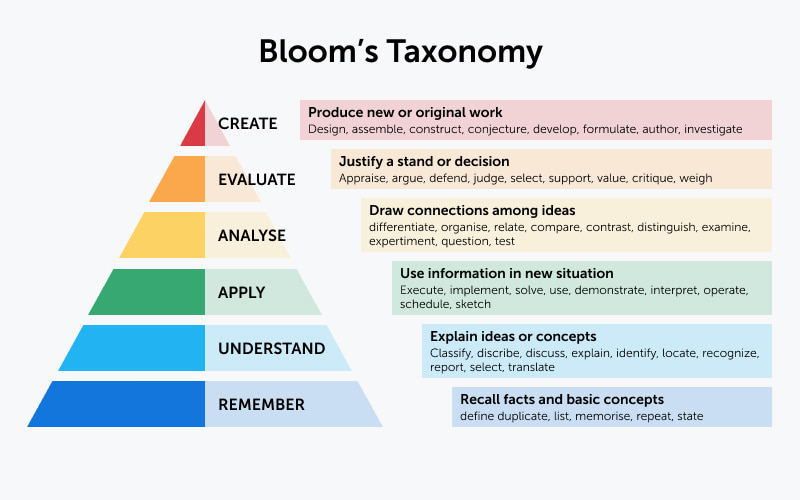Writing as Critical Thinking
==Blooms taxonomy==
 ==So…==
==So…==
- When we use flashcards to study, we are memorizing.
- When we find study materials online, we are repeating.
- When we teach a peer in a study group, we are explaining.
- When we take a test, we are stating.
- When we write in college, we are applying, analyze, and evaluating.
- When we publish, we are creating.
==When does Critical Thinking Happen?==
- This ability to think critically in day-to-day situations is sometimes dubbed "street smarts"
- Materials, jargon, equations, theories, or histories of difficult and heavily guarded academic subjects, make critical thinking more complex and much more difficult, and it requires much slower and more deliberate mental moves.
- Writing is the tool that we use for that, as it is a way for us to store our thoughts on a page, change and rework those thoughts, and then eventually come to rational and informed conclusions.
- This means that critical thinking happens on the page. When we draft and then revise our work, we are doing the slow work of critically thinking about it.
==What happens next?==
This is great news for many reasons, primarily because it allows all of the tools and information on the internet to influence our thinking.
We can have an annotated pdf and a word processor open at the same time, switching between them as we work through a complex idea.
We can fill in missing information with quick Wikipedia or encyclopedia Britannica searches.
We google anything. We can find anything.
We can think about anything.